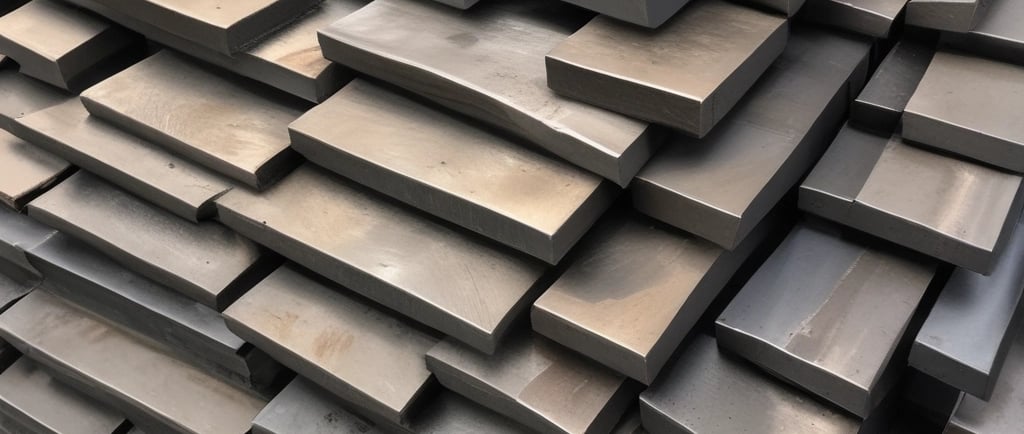The Standalone Excellence of 15N20 Steel in Knife Making
10/12/20252 min read


Introduction to 15N20 Steel
15N20 steel, a material celebrated in the world of metallurgy, often finds itself overshadowed by its popularity in the production of Damascus steel. While its role in the creation of exquisite Damascus patterns is unmatched, it is essential to recognize the standalone performance of 15N20 steel, especially in knife making. This blog post delves deeper into the unique attributes of 15N20 steel that make it an excellent choice for crafting high-quality knives.
Unique Properties of 15N20 Steel
15N20 steel, composed of a specific blend of elements (approximately 0.75% Carbon, 2.0% nickel, 0.40% manganese and 0.30% silicon), boasts exceptional toughness and excellent edge retention. The addition of nickel in its formulation contributes to its toughness and strength, setting it apart from other steels. These inherent properties allow blades made from 15N20 steel to maintain sharpness over extended periods while withstanding the rigors of daily use.
Moreover, the ease with which 15N20 steel can be sharpened enhances its appeal. A knife crafted from this steel can regain its sharpness quickly, making it an ideal companion for both professional chefs and outdoor enthusiasts. In addition, its ability to take on a high polish further increases the aesthetic appeal of knives made from this material.
Stand Alone Performance in Knife Making
When considering knife-making materials, various factors come into play — edge retention, toughness, ease of sharpening, and overall durability. While 15N20 steel is often noted for its role in the creation of eye-catching Damascus patterns, its standalone performance is exceptional in its own right. This steel’s versatility allows custom knife makers to create functional and beautiful blades that stand the test of time.
Artisans who choose to work with 15N20 steel often report an increase in customer satisfaction due to the blade's performance features. The combination of its strength and flexibility ensures that a knife remains reliable, even under heavy use.
Conclusion
In conclusion, while 15N20 steel is renowned for its role in the production of Damascus steel, it is imperative not to neglect its standalone virtues as a knife material. The exceptional toughness, edge retention, and ease of sharpening make 15N20 steel a worthy contender for anyone looking to invest in high-performance knives. By appreciating both its standalone capabilities and its contribution to the world of Damascus steel, one can fully understand why 15N20 continues to gain recognition among knife makers and enthusiasts alike.
